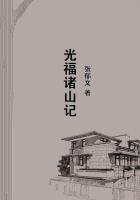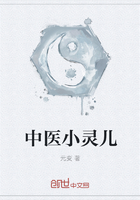ON THE MILITARY SIDE, immediately on entering Moscow, Napoleon gives General Sebastiani strict orders to keep a watch on the movements of the Russian army, sends detachments along the various roads, and charges Murat to find Kutuzov. Then he gives careful instructions for the fortification of the Kremlin; then he makes a plan of the coming campaign over the whole map of Russia; that was a work of genius, indeed. On the diplomatic side, Napoleon summons to his presence Captain Yakovlev, who had been robbed and reduced to rags and did not know how to get out of Moscow, expounds to him minutely his whole policy and his magnanimity; and after writing a letter to the Emperor Alexander, in which he considers it his duty to inform his friend and brother that Rastoptchin had performed his duties very badly in Moscow, he despatches Yakovlev with it to Petersburg.
Expounding his views and his magnanimity with equal minuteness to Tutolmin, he despatches that old man too to Petersburg to open negotiations.
On the judicial side, orders were issued, immediately after the fires broke out, for the guilty persons to be found and executed. And the miscreant Rastoptchin was punished by the order to set fire to his houses.
On the administrative side, Moscow was presented with a constitution. A municipal council was instituted, and the following proclamation was issued:—
“CITIZENS OF MOSCOW!
“Your misfortunes have been cruel, but his majesty the Emperor and King wishes to put an end to them. Terrible examples have shown you how he punishes crime and breach of discipline. Stern measures have been taken to put an end to disorder and to restore public security. A paternal council, chosen from among yourselves, will compose your municipality or town council. It will care for you, for your needs and your interests. The members of it will be distinguished by a red ribbon, which they will wear across the shoulder, and the mayor will wear a white sash over it. But except when discharging their duties, they will wear only a red ribbon round the left arm.
“The city police are established on their former footing, and they are already restoring order. The government has appointed two general commissioners, or superintendents of police, and twenty commissioners, or police inspectors, stationed in the different quarters of the town. You will recognise them by the white ribbon they will wear round the left arm. Several churches of various denominations have been opened, and divine service is performed in them without hindrance. Your fellow-citizens are returning every day to their dwellings, and orders have been given that they should find in them the aid and protection due to misfortune. These are the measures which the government has adopted to restore order and alleviate your position; but to attain that end, it is necessary that you should unite your efforts with them; should forget, if possible, the misfortunes you have suffered; should look hopefully at a fate that is not so cruel; should believe that a shameful death inevitably awaits those guilty of violence against your persons or your deserted property, and consequently leaves no doubt that they will be preserved, since such is the will of the greatest and most just of monarchs. Soldiers and citizens of whatever nation you may be! Restore public confidence, the source of the prosperity of a state; live like brothers, give mutual aid and protection to one another; unite in confounding the projects of the evil-minded; obey the civil and military authorities, and your tears will soon cease to flow.”
On the commissariat side, Napoleon issued orders for all the troops to enter Moscow in turn, à la maraude, to gather supplies for themselves; so that in that way the army was provided with supplies for the future.
On the religious side, Napoleon ordered the priests to be brought back, and services to be performed again in the churches.
With a view to encouraging commerce and providing supplies for the troops, the following notice was placarded everywhere:—
“PROCLAMATION.















